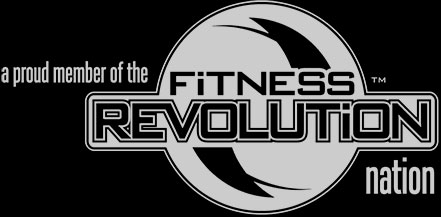I hate being reactionary. I despise having to spend time rectifying a situation that could have been avoided simply by being proactive. This post is in reaction to something troubling that I have noticed over the summer. I am not angry or disappointed in anyone other than myself for this problem. I could have done much more to try and avoid this situation all together, but here we are, spending time writing this post. The problem? Athletes and adults alike who come to train on empty (or poorly fed) stomach’s, with inadequate levels of hydration, and are suffering from sleep deprivation.
Before nearly every training session, I like to ask our athletes what they ate for breakfast. It would be safe to assume that nearly 80% of the answers I get go something like, “well, I woke up at 8:45 (for a 9am session) so I didn’t have time to eat anything.” Or another common answer is, “I woke up but mom wasn’t there so I had a pop-tart (or some other kind of sugary breakfast pastry).” Occasionally I’ll get a kid tell me they had eggs, toast, and a glass of OJ. Obviously, the kid with the well balanced breakfast is in the clear. Option number two: Kid with the pop-tart; while not ideal, is in better shape than the kid who ate nothing. Expecting to come in and train hard on an empty (or poorly fed) stomach is equivalent to expecting your car to get you to work without any gas in the tank… it‘s not going to happen. Occasionally, somebody will say that they can’t train after they eat, and I totally understand that. To avoid this, try eating something small, such as a granola bar or piece of fruit. You could also try eating a meal about two hours prior to training. This will allow for enough time for digestion and give you the energy and stable blood sugar that you need. Worst case scenario, drink a protein shake or even a glass of juice. Ideally, you eat some form of protein (lean meat, eggs…) prior to and immediately after your training. Make sure to include some form of carbohydrate as well. This can be as simple as having an apple or a few slices of toast. I personally can’t eat right after training so I drink a protein shake that is high in carbohydrates and then eat something about an hour after that (shameless plug: the Gatorade shakes that we sell are amazing!).
It is currently August in Ohio; it’s freaking hot and humid. Hydration, or in the case of training, re-hydrating is absolutely essential. Again, you would not believe how many kids (and adults) don’t take re-hydrating themselves seriously. When it’s as hot as it is outside, you sweat. This is the body trying to cool itself. This cooling mechanism can only work when the sweat you produce is evaporated. When the humidity is as high as it is, you can’t evaporate sweat, therefore you keep sweating. This constant cycle quickly leads to dehydration. When you’re dehydrated, your body cannot perform the basic functions that it needs at optimal speeds. You become sluggish, dizzy, and nauseous. All of these symptoms, along with being dangerous, severely hamper your performance. The best way to check your hydration status is to check your urine color. You should be aiming for a clearer color more so than a yellowish one. When re-hydrating after exercise, replenish 1.5 times your body weight, in ounces, lost during activity. So if I lose one pound during exercise, I should drink about 20-24 ounces of water. I constantly have a cup of water with me and I aim to fill it up at least five times a day. It is unlikely to become over hydrated so make sure that you are drinking enough to help in the recovery process. When it comes to dehydration, if you’re thirsty you’re likely already dehydrated. Aim to stay ahead of it.
Finally, we get to sleep. The benefits of sleep on activity and as a performance enhancer are so numerous that I’m saving this topic for an entirely different blog post. The takeaway from this post: Get more sleep!! So many kids come in sluggish, tired, groggy, basically no motivation to train. You ask them what time they went to bed and they’ll tell you “oh probably around 2 or 3.” Younger athletes should be aiming for about 10 hours of sleep a night. Everyone has different sleep needs, but a vast majority need a minimum of 8 hours to function properly. If you have trouble falling asleep at night, there a few things that you can try. Make sure that all electronic devices are shut off and try to avoid doing anything on your phone for at least an hour before bed (I’m more than guilty of not doing this). You can also try stretching, foam rolling, and meditation. All of these help to active your para-sympathetic nervous system which causes you to relax.
There you have it, the pre-workout recipe:
Get 8-10 hours of quality sleep the night before training.
Be sure that you have been hydrating yourself throughout the previous day and before your training session.
Do your best to get some sort of food in your system prior to training. Again, this can be as simple as having a granola bar or a piece of fruit. You just need something to give you the energy to get through your workout.

